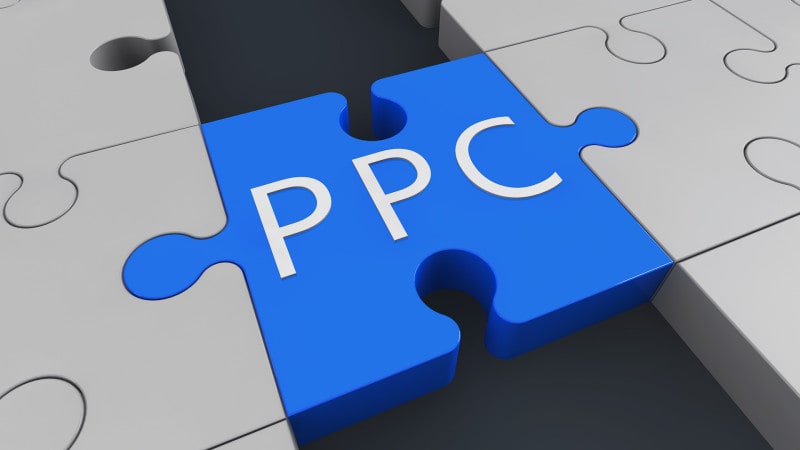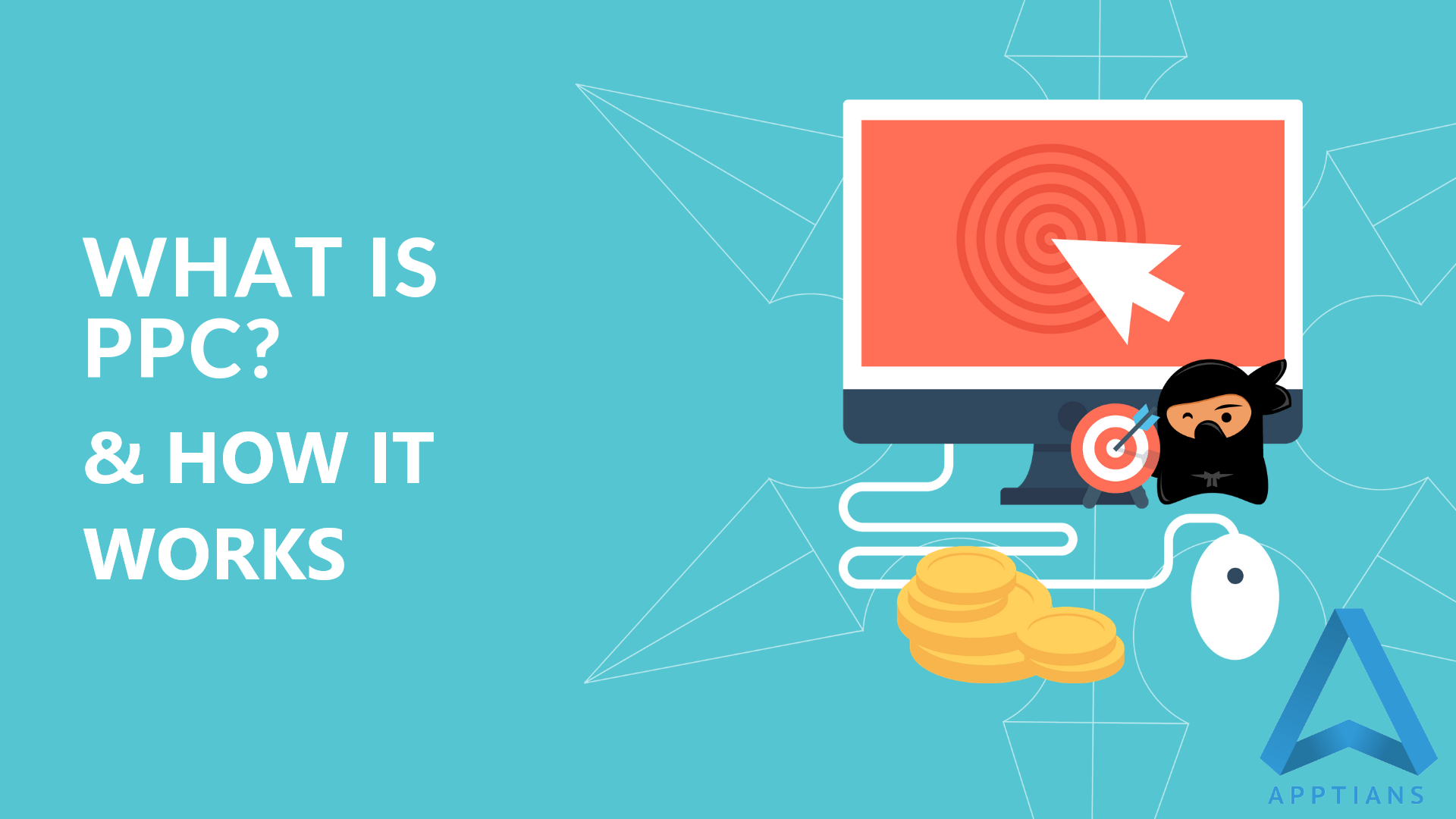If you deal with the subject of online marketing, you will come across the term “PPC advertising” pretty quickly. But what do these three letters actually stand for? Is PPC advertising worth it at all? What are the benefits of PPC advertising?
Questions upon questions that quickly lead to beginners in particular like to underestimate the potential of pay-per-click advertising. Find out in our following article the most important facts about PPC advertising and how you can benefit from paid advertising.
What is PPC Marketing?
The abbreviation “PPC” stands for “Pay-Per-Click” and primarily describes a billing method that is used in PPC advertising. This means that billed according to PPC, costs are only incurred when an ad is actually clicked on. There are no fees for showing the ad (keyword: impressions)!
How does PPC advertising work?

Search engines like Google or Bing offer companies the opportunity to place paid advertising. Such an advertisement always appears in the organic search when the user enters a single search term or several combined keywords (longtails). Paid advertisements can also appear subject-specific. Example: The user wants to find out about the latest trends in the garden and is directed to a website that belongs to the Google display network. When he visited the site, he was shown advertisements from other trees/garden sites that are running PPC campaigns.
Worth knowing:
- The basic principle behind PPC advertising can be compared to an auction. The company that offers the most for one click gets the advertising space. That is why you usually have to dig deeper into your pocket for highly competitive search terms. Attention: In PPC marketing, the principle of the highest bidder applies, but not exactly as you know it from classic auctions. Other factors also flow into the evaluation of the “auctioneers”, which means that PPC advertising can pay off even for companies with a low advertising budget.
- For a long time, PPC advertising was only implied with paid advertising in the search engines. But that has changed in the meantime, because on social media platforms such as For a few years now, for example, Facebook & Instagram have been able to place advertisements against payment.
What goals can be achieved with PPC advertising?
Companies that rely on PPC advertising usually pursue different goals, such as B. brand awareness, brand reach, the acquisition of prospects / new customers or the achievement of sales (so-called conversions).
PPC advertising: pros and cons
+ PPC advertising usually has a large reach
+ Measurability and scalability are two main advantages of PPC advertising. PPC advertising can practically be tailored individually to the needs of a company and its target group. Seamless tracking of campaign performance prevents unnecessary advertising budgets from being burned. The advertiser or entrepreneur can react immediately should he discover that an advertisement is no longer profitable.
+ PPC advertising usually offers a good return on investment ( ROI ). The optimal ratio is 1: 5. One Rupee invested has to generate practically five Rupees in sales. In addition, most platforms that offer PPC advertising allow maximum cost control. As a rule, there is also a clear cost structure.
+ Well-known platforms such as Google have the necessary tools on board that are necessary or helpful for creating efficient PPC advertising. So you can, For example, use the Google Keyword Planner to find the keywords that can pay off to advertise.
+ Most platforms allow remarketing.
+ PPC advertising can help you to generate the first positive touchpoints with your target group relatively quickly. The investment in SEO is again long-term because it just doesn’t work without visibility on the web.
+ If you place PPC advertising, you can benefit from the trust that users already have in the respective platform.
– Unfortunately, one disadvantage of PPC marketing is that it is completely irrelevant whether the user buys the product or service or not. The benchmark for billing is and remains the number of clicks achieved.
– In contrast to search engine optimization, advertisements are no longer displayed as soon as the advertising budget is used up. For best results, it is recommended that PPC ads are continuously optimized and monitored. Of course, this requires a certain amount of time.
– But we come to an important topic that should not be underestimated. One of the most serious problems in PPC marketing is what is known as click fraud. Unfortunately, there are also black sheep among advertisers who want to harm their competition. In “click fraud”, the clicks are simulated by computer programs in order to inflict financial damage on the advertiser. However, this phenomenon often goes unnoticed. Companies affected by click fraud usually wonder about the high cost of the ad and the lack of results.
– PPC advertising requires consistent work if lasting success is to be guaranteed.
Worth knowing: Especially about SEM, there are many rumours and myths circulating, which can easily lead to misunderstandings. Misunderstandings that the advertiser or the website owner sometimes has to pay dearly.
Warning: If the organic ranking does not work, PPC advertising does not promise a quick solution. SEM and SEO are inextricably linked. You can even say that good on-page SEO is the basis for successful and efficient SEM.
How do you start a PPC advertising campaign?
First of all, you should be clear about the goals you want to achieve with PPC advertising. Find the platforms (e.g. Google Ads, Facebook, Instagram, etc.) that are suitable for you because your target audience is there and they are likely to be the most profitable for you.
Does your online shop/website meet the minimum requirements of the respective advertising platform? Check the on-page SEO of your website! Is the loading time moving within the framework? Does the user find their way around the website easily? Does he know what action you want him to do? How is the organic ranking of your website doing?
Which target group do you want to reach? Conduct an audience analysis. You can find out how this works best and most efficiently with keyword research.
Tip: If you are one of those people who have the Analytics tracking code installed on their website, then target group analysis will be easier for you. Thanks to the tool, it is easy to find out where your potential buyers are from. To do this, go to the multi-channel funnel and conversions. Using the conversion paths, you can see how and where the users get to your website.
Worth knowing:
- Most platforms work according to a similar principle, some of which differ from one another, but still clearly from one another. can be seen in the comparison of Google Ads with Facebook.
- Make sure to find out which formats the advertising platform you have selected offers.
Example display network campaigns / search network campaigns : Search network campaigns are usually more efficient than display network campaigns because the user is actively looking for something here. This is not the case with display ads. That is why they are often less efficient. - The preparatory work that is always necessary with PPC advertising is usually done within a few days and the PPC campaign can be created relatively quickly.
- When creating the ads, you should always pay attention to maximum relevance to the linked pages.
PPC advertising: our tricks and tips
- How much PPC advertising makes sense for you or your company depends on
- what makes your target group tick,
- what you want to sell
- and how strong your competition is.
➢ Basically, however, one can say that PPC advertising is a good choice, especially when introducing a new product / service.
- Many believe that PPC advertising is relatively expensive. This is only partially correct, because you shouldn’t forget that satisfied customers don’t just buy from a retailer once, but over and over again. Again, that is priceless!
- PPC advertising – most of them are still highly motivated when they take their first steps. Over time, however, most of them lose their ambition and interest, as there are other tasks to be done in the company in addition to marketing. If a Google Ads campaign is running on autopilot, that’s bad because it wastes potential. Fresh, innovative ideas paired with passion and creativity can help you to break new ground with PPC advertising.
- Constant tracking of the performance of your active campaigns is essential.
- If your campaign is not showing the desired efficiency, it can make sense to change your ad groups. Remove the keywords from the ad group that are not profitable for you. Expand your list of negative keywords. Sometimes it can also be advisable to change the wording of the ad texts.
- Try different bid strategies and new ad formats. For this purpose, Google offers a number of auxiliary tools and tools with which you, even as a layperson, can usually easily implement efficient A / B testing .
- Check your target group analysis regularly and adjust it if necessary.
Do you need professional support in developing your PPC campaign? Just drop us a line!
